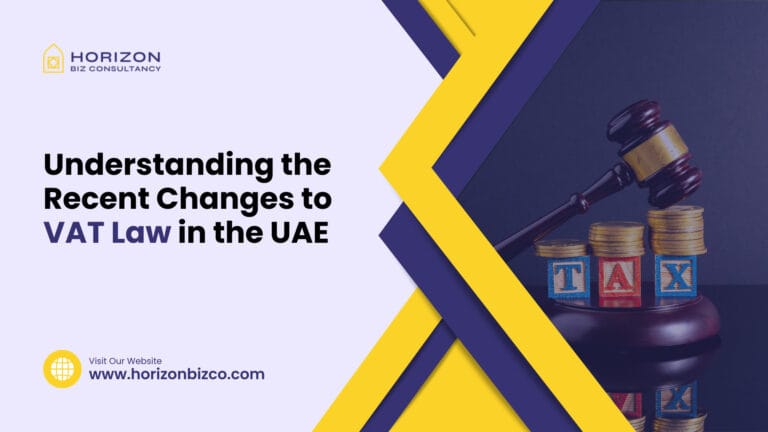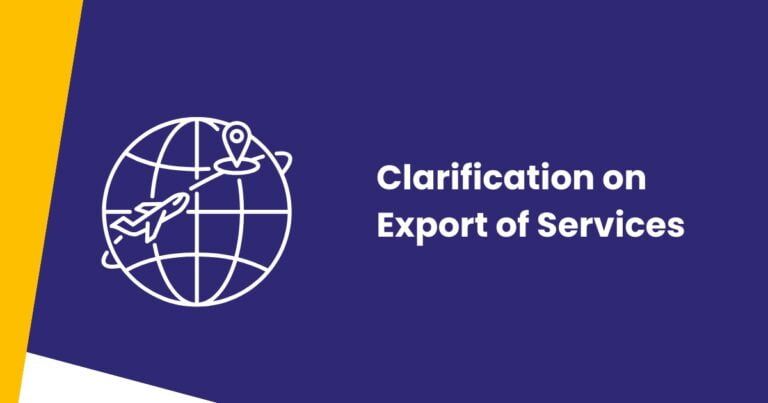Introduction
The UAE government changed their Value Added Tax (VAT) laws. Many businesses and individuals need to know these changes. These amendments aim to boost the economy and make taxes fairer.
In this article, we will explain what the main changes are using simple language so it’s easy to understand. We will also answer some common questions people may have about how the updates affect them.
Strategic Impact of VAT Law Amendments on UAE’s Economic Vision
The recent changes to VAT law in the UAE are more than just tweaks to the tax system they’re a clear signal of the country’s dedication to building a sustainable and competitive economy. This approach not only aims to draw in international investments but also supports local charitable efforts. These amendments fit neatly into the UAE’s larger strategy to diversify its economy, moving away from oil reliance and towards a knowledge-driven landscape.
The government’s strategy shows a deep understanding of what modern businesses need, especially in fast-growing areas like digital currencies and investment management. By easing tax burdens on certain services and tightening enforcement, the UAE is working to foster an environment where legitimate businesses can flourish while ensuring that tax collection is effective.
Key Changes to VAT Exemptions and Their Impact
Investment Fund Management Services
- Complete VAT exemption for investment fund management activities
- A 5% cost reduction for both investors and fund managers
- Improved competitiveness against other international financial centers
- Streamlined compliance requirements for fund management firms
Digital Currency Services
- VAT exemption for certain cryptocurrency trading activities
- Lower transaction costs for digital currency exchanges
- Greater appeal for fintech companies and blockchain enterprises
- Alignment with global trends in digital currency taxation
Charitable Donations and Activities
- VAT exemption for charitable donations made between organizations and the government
- A threshold limit of AED 5 million annually for qualifying donations
- Coverage includes food, clothing, and essential items for humanitarian purposes
New Services That Are Now VAT Exempt
The Ministry of Finance said that three types of services no longer need to charge VAT. They are:
Investment fund management services. This means companies that help people invest money don’t have to add the 5% VAT tax anymore.
Some digital currency services. Things like buying and selling Bitcoin or Ethereum online will see less extra costs now without VAT.
Charitable donations between charities and the government. Organizations that give food, clothes or other items worth less than 5 million dirhams each year to help people no longer need to pay tax on these donations.
Before this change, businesses providing these services had to charge an extra 5% VAT amount on top of prices. Removing VAT for them should help make costs lower. The goal is to encourage more investment and assistance for those in need.
Stricter Rules for Tax Paying Businesses
The updated VAT law provides the Federal Tax Authority with stronger powers. They can now stop companies from being officially registered as taxpayers if they don’t follow the tax rules properly.
This aims to ensure everyone pays the right amount of taxes owed. It motivates all businesses to keep detailed records of sales and purchases and fill out paperwork accurately when required. Proper record keeping is important.
Changes Bring UAE VAT Rules into Regional Alignment
Parts of the UAE’s VAT system were adjusted to be more similar to agreements made between countries in the GCC (Gulf Cooperation Council) region. Harmonizing or coordinating rules across borders within the GCC makes international trade between places like Saudi Arabia, Qatar and the UAE go smoother.
Aligning also helps the UAE keep up with best practices used globally as value added tax systems evolve worldwide. It demonstrates the country’s commitment to cooperation within the Gulf.
Conclusion
To summarize, the UAE government makes periodic VAT regulation changes aimed at striking a balance between collecting tax revenues, encouraging business activity, and attracting investment into the country. By exempting more services and coordinating VAT strategies within the GCC, the latest updates seek to relieve costs for charities and smooth regional trading while maintaining an equitable system overall. Staying up to date on VAT laws remains important for all stakeholders under these evolving rules.
Frequently Asked Questions
A. The Cabinet approved these changes recently, so businesses and consumers should be following the updated VAT laws immediately from now on. All aspects of the alterations have started.
A. For citizens, there’s little direct impact likely. But companies in certain industries will save money with reduced VAT percentages. Compliance with tax officials remains important to avoid penalties, and regional commerce may become more streamlined overall.
A. Review your activities and see if you benefit from exemptions. Keep paper copies of sales receipts and purchase bills carefully in case officials need to review them for audits or checks. Getting guidance from a trusted VAT adviser helps ensure ongoing compliance if you have complex operations. It’s also good to stay informed of any future VAT rule modifications.





